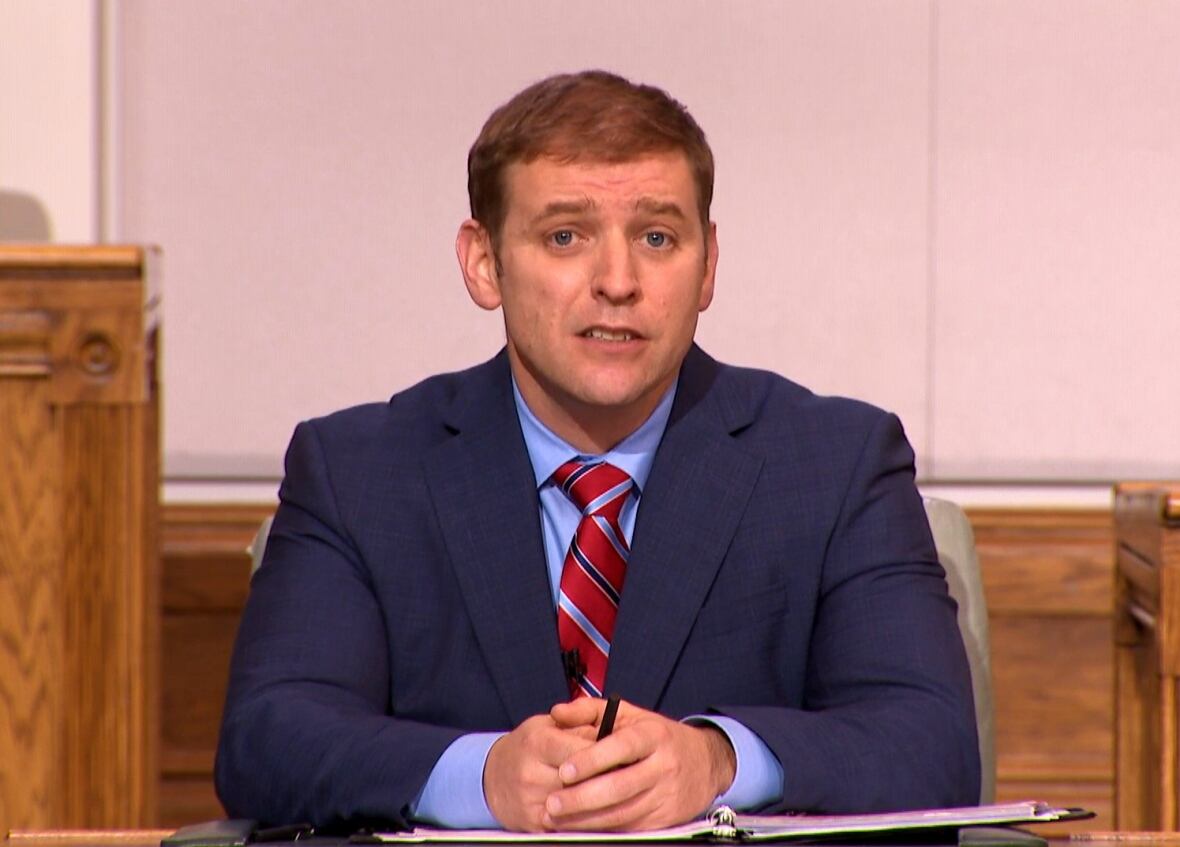CD Howe report raises uncomfortable questions on N.L.'s gloomy financial future
Liberal and PC party leaders weigh in during debate on Toronto-based think tank recommendations

As the provincial election continues, candidates have faced a single commanding issue: Newfoundland and Labrador's $16-billion debt.
A new report from the Toronto-based CD Howe Institute, aptly called The Rock and a Hard Place, suggests a number of solutions, including hundreds of millions of dollars in spending cuts.
Don Drummond, the report's co-author and TD Bank's former chief economist with, says mathematically speaking, the province simply can't maintain its current spending patterns.
"I don't think it's sustainable at all," he said. "The debt ratio has been very high for quite some time, really starting way back in 2012 to 2013, and then hit again with the weakening of the oil prices [in 2020]."
Drummond said unless offshore royalties return in a big way — something he doesn't think anyone should bet on — the province's spending will remain at odds with its income.
"When the [royalties] were really high, the spending was ramped," he said. "That spending never came back down when the royalties came back down."
It's often said Newfoundland and Labrador is an expensive province to run, due to its small population spread out over a large area. Drummond said population density is no excuse for the spike in spending that started after the oil boom.
"In the early 1990s, the spending per capita in Newfoundland and Labrador was similar to the Canadian average. It really changed when the offshore came into place."
Drummond said governments shouldn't spend revenues as if they'll always be there, especially when income sources involve highly volatile, non-renewable resources.
"But essentially, that's what happened," he said. "That all got spent."

Drummond pointed to civil servant wages, the largest expenditure in the province, as a possible area for cuts and privatization.
In Wednesday's leaders' debate, Liberal Leader Andrew Furey and NDP Leader Alison Coffin both said they would not support immediate public sector layoffs. PC Leader Ches Crosbie was not offered a chance to weigh in on that question, but has campaigned on a platform of job creation.
Drummond also said while the province has to accept a lower rate of return on Muskrat Falls, Ottawa has an obligation to help.
"I think the federal government were aiding and abetting this project with loan guarantees. I think they have to cut some slack and join in that effort as well," he said.
The CD Howe report details getting to a balanced budget by 2025-26, something Drummond says is feasible if the government rolls back program spending to where it was a couple of years ago, and if the pandemic is brought under control soon.
"It wouldn't be extraordinarily large cuts, but I never want to dismiss the difficulty of doing that," Drummond said. "I'm not trying to suggest it's going to be easy, but it's not like spending has to be rolled back by 10 or 15 per cent or anything near to that kind of magnitude."
Party leaders weigh in on provincial spending
During this week's leaders' debate, CBC's Peter Cowan posed the question of provincial spending to Liberal Leader Andrew Furey and PC Leader Ches Crosbie, noting that the CD Howe report specified cuts.
Furey said the province first has to address Muskrat Falls.
"Almost $14 billion is an anchor around the collective souls of Newfoundland and Labradorians, brought to you by a former Progressive Conservative government," said Furey, adding that his government had already begun a restructuring plan and secured $840 million from Ottawa.

Crosbie accused Furey of overselling what his government had accomplished.
"That's just another can that the Liberal government has kicked down the road that we're going to have to deal with," said Crosbie, who said the bulk of that money was a debt repayment deferral.
"We have an expenditure problem, but that's only half the problem: that requires us to go line by line through our expenses so we can make smart decisions, be more efficient, do more with what we have."
The other half of the issue, said Crosbie, was a lack of economic growth, and warned the Liberal leader that governments can't cut their way to balanced books. "You have to grow your way out of it," he said.
Both leaders have previously intimated that cuts are on the table for the province. Coffin, meanwhile, has argued for an investment approach to growth, and has said she would fortify rural services and increase health-care hiring.
